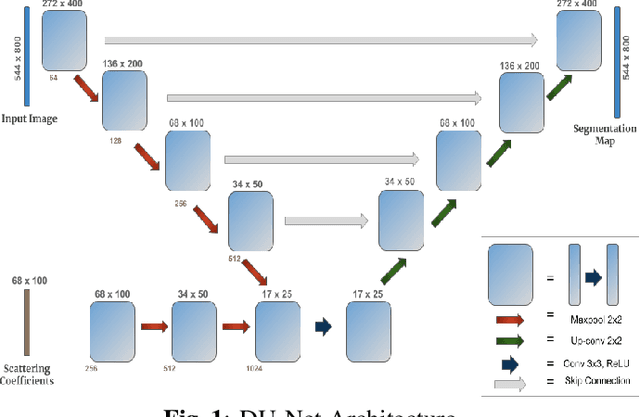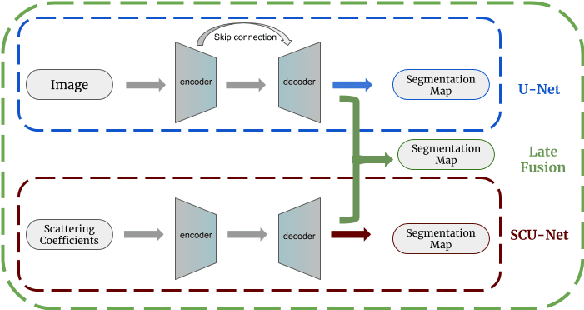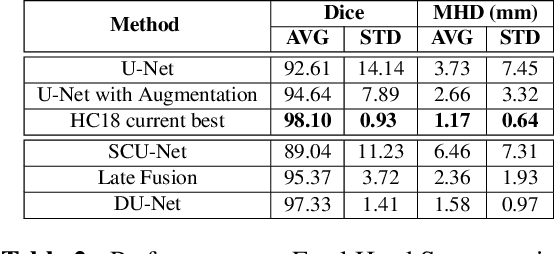Image Segmentation Using Hybrid Representations
Paper and Code
Apr 15, 2020



This work explores a hybrid approach to segmentation as an alternative to a purely data-driven approach. We introduce an end-to-end U-Net based network called DU-Net, which uses additional frequency preserving features, namely the Scattering Coefficients (SC), for medical image segmentation. SC are translation invariant and Lipschitz continuous to deformations which help DU-Net outperform other conventional CNN counterparts on four datasets and two segmentation tasks: Optic Disc and Optic Cup in color fundus images and fetal Head in ultrasound images. The proposed method shows remarkable improvement over the basic U-Net with performance competitive to state-of-the-art methods. The results indicate that it is possible to use a lighter network trained with fewer images (without any augmentation) to attain good segmentation results.
 Add to Chrome
Add to Chrome Add to Firefox
Add to Firefox Add to Edge
Add to Edge